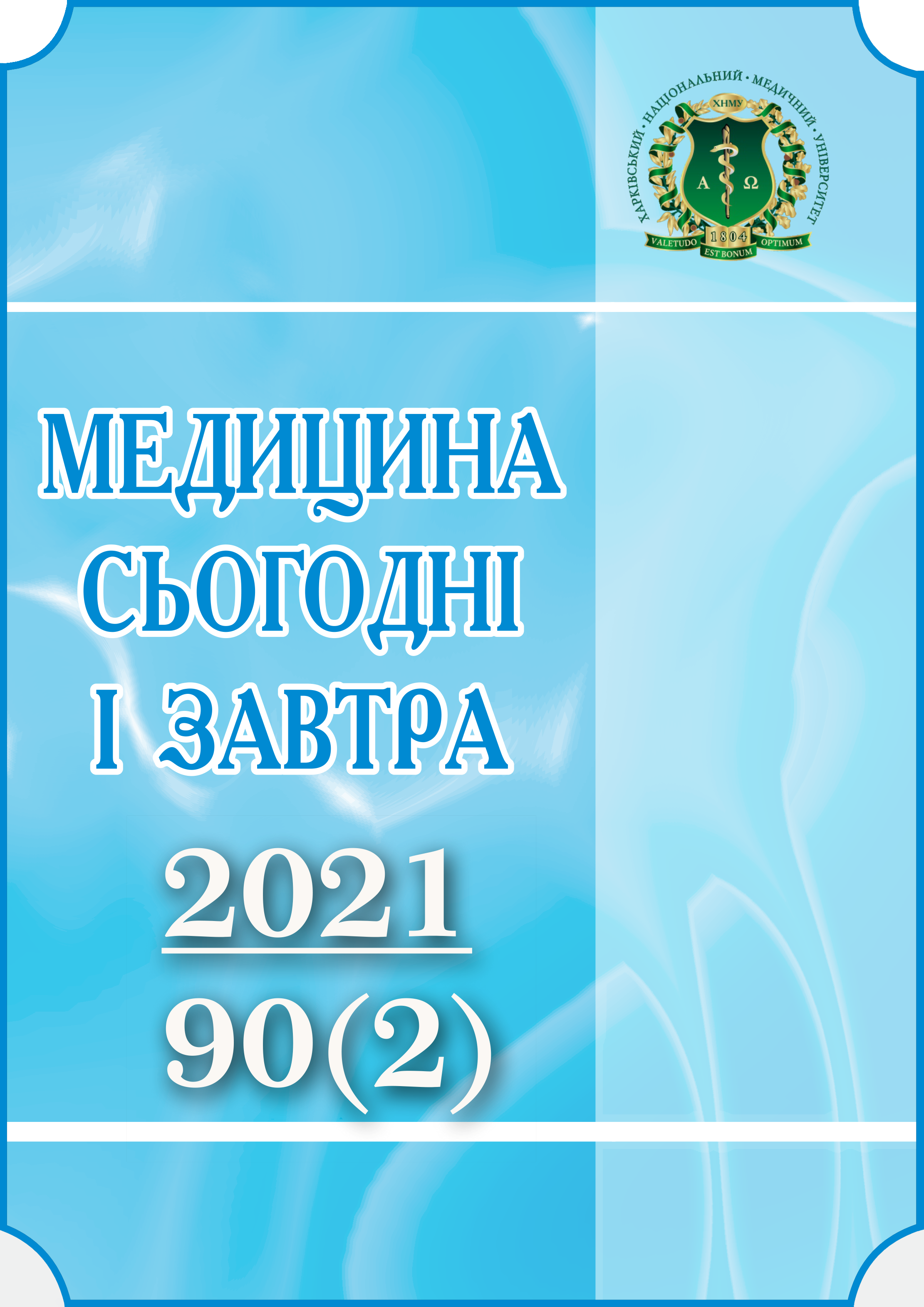Abstract
As a result of an excess of thyroid hormones, a clinical syndrome occurs ‒ thyrotoxicosis. Female patients develop thyrotoxicosis more often than male patients. The prevalence of this diagnosis is about 2% in the female population and 0.2% in the male population. Thyrotoxicosis is classified as a psychosomatic disorder. Mental trauma plays a major role in the development of thyrotoxicosis. The most common mental symptoms of thyrotoxicosis correspond to symptom complexes of anxiety and affective disorders. The purpose of this study was to determine reactive and personal anxiety in patients with thyrotoxicosis. The main group of the study included 56 men and women with thyrotoxicosis, aged 25–55 years, who were diagnosed with an anxiety disorder of an organic nature. The control group included 32 people of both sexes, aged 25–55, who were diagnosed with a prolonged anxiety-depressive reaction. The psychodiagnostic research method was used in the work, which included the State-Trait Anxiety Inventory (STAI), by Spielberger C.D. and Khanina Yu.L. It was established that most patients with thyrotoxicosis are characterized by a pronounced level of both reactive and personal anxiety; a moderate level is noted in a fifth of patients, which can be considered within the framework of premorbidity. A low level of anxiety in patients with thyrotoxicosis was not observed at all. The pattern of situational anxiety in patients with thyrotoxicosis consisted of negative emotional manifestations, including effector-volitional ones with a radical of excitement. In the structure of personal anxiety in patients with thyrotoxicosis, anxious and distrustful character traits and sensitivity came to the forefront.
Keywords: anxiety, thyrotoxicosis, reactive anxiety, personal anxiety.
References
Bodnar PM, Mykhalchyshyn HP, Komisarenko YuI, Prystupiuk OM, Bolshova OV, Ventskivskyi BM, et al. Endocrinology: a textbook for students of higher medical educational institutions. Ed. Bodnar PM. 3d ed., rew. & suppl. Vinnytsia: Nova Knyha [New Book]; 2013. 480 p. [In Ukrainian].
Fava GA, Sonino N, Morphy MA. Psychosomatic view of endocrine disorders. Psychother Psychosom. 1993;59(1):20-33. DOI: 10.1159/000288641. PMID: 8441792.
Ishchuk VV. Systematization of coping strategy in psychoendocrine syndrome against background of widespread forms of endocrine disorders. Medical psychology. 2019;(1):27–31. Available at: http://www.mps.kh.ua/archive/2019/1/6 [In Ukrainian].
Mendelevych VD, Soloveva SL. Nevrozolohyia y psykhosomatycheskaia medytsyna [Neurosology and psychosomatic medicine]. M.; 2002. 603 p. [In Russian].
Feldman AZ, Shrestha RT, Hennessey JV. Neuropsychiatric manifestations of thyroid disease. Endocrinol Metab Clin North Am. 2013;42(3):453‒76. DOI: 10.1016/j.ecl.2013.05.005. PMID: 24011880.
Bunevicius R, Prange AJ Jr. Psychiatric manifestations of Graves' hyperthyroidism: pathophysiology and treatment options. CNS Drugs. 2006;20(11):897‒909. DOI: 10.2165/00023210-200620110-00003. PMID: 17044727.
Bauer M, Goetz T, Glenn T, Whybrow PC. The thyroid-brain interaction in thyroid disorders and mood disorders. J Neuroendocrinol. 2008;20(10):1101‒14. DOI: 10.1111/j.1365-2826.2008.01774.x. PMID: 18673409.
Spielberger CD, Gorsuch RL. State-Trait Anxiety Inventory for Adults: Sampler Set: Manual Test Booklet and Scoring Key. Mind Garden; 1983. 86 р.

